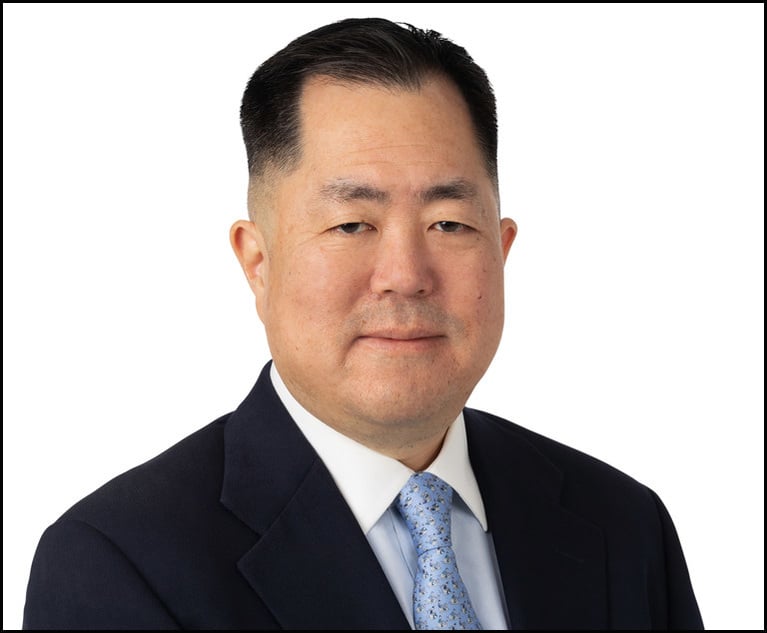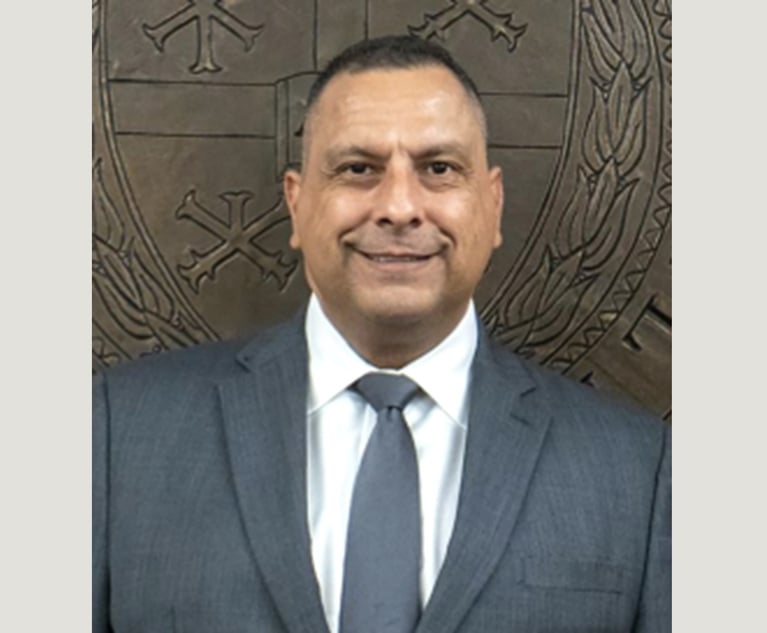 Credit: amasterphotographer/Shutterstock.com
Credit: amasterphotographer/Shutterstock.comHow Law Firms Overlook Diversity of Thought in Inclusion Efforts
Diversity of appearance doesn't necessarily ensure that firms have the right range of opinions to push forward.
September 10, 2019 at 03:00 PM
4 minute read
U.K. law firm heads believe they have a new drawing card for law graduates. No longer able to compete with U.S. firms on salaries in London, many of the top firms privately say they are attempting to become a popular destination for the best talent through their diversity policies.
Many top U.K. firms already dominate international rankings of LGBT-friendly employers, and they are stepping up their efforts to improve the gender and racial balances in their partnerships. Yet, although it might help firms in the hiring process, the broader purpose in the push for diversity seems to have been lost.
Though great progress may be made regarding race, gender and sexual orientation, law firms are seemingly blind to a variety of diversity issues. There remains a massive bias toward in-shape, privately educated English literature, humanities and law graduates—a disproportionate number of whom went to either the University of Oxford or the University of Cambridge. In the U.K., the age range of lawyers is also limited. Not many partners work past the age of 65 and almost all trainee intakes at top firms are in their 20s. Where are the math graduates who come from other industries and requalify as lawyers? Where are all the pensioners who decide to work into their 70s? When was the last time you met a lawyer with disabilities?
It is relatively easy to focus on specific quotas, but diversity is actually a far broader topic than race, gender and sexual orientation, and tackling those three areas should not be seen as a panacea to the problem.
Perhaps as they approach the issue of diversity, firms should think about what they are trying to achieve. Impressing graduates because you are diverse is obviously a benefit, but few would say it is the primary motivation for such efforts. In theory, at least, a bigger reason is surely to avoid groupthink. Employing a diverse range of people ensures creativity and helps guard against everyone remaining oblivious to certain problems.
Although partnerships with more women, ethnic minorities and LGBT lawyers are a good thing, I've never heard it said that they lead to more healthy debate on important decisions. In fact, they may all still think the same way because they were hired to fit in with a firm's culture. For decision-making purposes, some experts in the area suggest that diversity of skill, knowledge and opinion, rather than diversity of readily observable demographics, is key. In other words, law firms need people who not only look different, but think different.
This may require firms to bring in more old people, or those who have spent time in a different industry, or even those who are not as well educated in the traditional sense. But perhaps it simply requires them to seek out people who have a different mindset than what they are used to. That sort of diversity almost certainly leads to debate and healthy disagreement.
Fixated as firms are on the idea of a collegiate culture, encouraging dissent, especially below the partner level, is tantamount to heresy. But for firms keen on innovation, this is a necessary part of the creative process. I know of one person who works at a top British company famed for its innovation who says the institution actively hires people who question decisions, hoping to encourage debate and disagreement. It might cause internal friction, but it seems to help the company produce top-quality inventions.
Selling yourself as a firm that welcomes dissenting opinions might seem counterintuitive to graduate recruitment teams. But for law firms serious about developing diversity of thought, it could make all the difference.
Email: [email protected]
This content has been archived. It is available through our partners, LexisNexis® and Bloomberg Law.
To view this content, please continue to their sites.
Not a Lexis Subscriber?
Subscribe Now
Not a Bloomberg Law Subscriber?
Subscribe Now
NOT FOR REPRINT
© 2025 ALM Global, LLC, All Rights Reserved. Request academic re-use from www.copyright.com. All other uses, submit a request to [email protected]. For more information visit Asset & Logo Licensing.
You Might Like
View All
Husch Blackwell Hires Former Adobe Counsel to Oversee AI Advisory Offering
3 minute read
'Taking the Best' of Both Firms, Ballard Spahr and Lane Powell Officially Merge
6 minute read
Bracewell Adds Former Pioneer Natural Resources Lawyer to O&G, Energy Transition Practices
2 minute read
Trending Stories
Who Got The Work
Michael G. Bongiorno, Andrew Scott Dulberg and Elizabeth E. Driscoll from Wilmer Cutler Pickering Hale and Dorr have stepped in to represent Symbotic Inc., an A.I.-enabled technology platform that focuses on increasing supply chain efficiency, and other defendants in a pending shareholder derivative lawsuit. The case, filed Oct. 2 in Massachusetts District Court by the Brown Law Firm on behalf of Stephen Austen, accuses certain officers and directors of misleading investors in regard to Symbotic's potential for margin growth by failing to disclose that the company was not equipped to timely deploy its systems or manage expenses through project delays. The case, assigned to U.S. District Judge Nathaniel M. Gorton, is 1:24-cv-12522, Austen v. Cohen et al.
Who Got The Work
Edmund Polubinski and Marie Killmond of Davis Polk & Wardwell have entered appearances for data platform software development company MongoDB and other defendants in a pending shareholder derivative lawsuit. The action, filed Oct. 7 in New York Southern District Court by the Brown Law Firm, accuses the company's directors and/or officers of falsely expressing confidence in the company’s restructuring of its sales incentive plan and downplaying the severity of decreases in its upfront commitments. The case is 1:24-cv-07594, Roy v. Ittycheria et al.
Who Got The Work
Amy O. Bruchs and Kurt F. Ellison of Michael Best & Friedrich have entered appearances for Epic Systems Corp. in a pending employment discrimination lawsuit. The suit was filed Sept. 7 in Wisconsin Western District Court by Levine Eisberner LLC and Siri & Glimstad on behalf of a project manager who claims that he was wrongfully terminated after applying for a religious exemption to the defendant's COVID-19 vaccine mandate. The case, assigned to U.S. Magistrate Judge Anita Marie Boor, is 3:24-cv-00630, Secker, Nathan v. Epic Systems Corporation.
Who Got The Work
David X. Sullivan, Thomas J. Finn and Gregory A. Hall from McCarter & English have entered appearances for Sunrun Installation Services in a pending civil rights lawsuit. The complaint was filed Sept. 4 in Connecticut District Court by attorney Robert M. Berke on behalf of former employee George Edward Steins, who was arrested and charged with employing an unregistered home improvement salesperson. The complaint alleges that had Sunrun informed the Connecticut Department of Consumer Protection that the plaintiff's employment had ended in 2017 and that he no longer held Sunrun's home improvement contractor license, he would not have been hit with charges, which were dismissed in May 2024. The case, assigned to U.S. District Judge Jeffrey A. Meyer, is 3:24-cv-01423, Steins v. Sunrun, Inc. et al.
Who Got The Work
Greenberg Traurig shareholder Joshua L. Raskin has entered an appearance for boohoo.com UK Ltd. in a pending patent infringement lawsuit. The suit, filed Sept. 3 in Texas Eastern District Court by Rozier Hardt McDonough on behalf of Alto Dynamics, asserts five patents related to an online shopping platform. The case, assigned to U.S. District Judge Rodney Gilstrap, is 2:24-cv-00719, Alto Dynamics, LLC v. boohoo.com UK Limited.
Featured Firms
Law Offices of Gary Martin Hays & Associates, P.C.
(470) 294-1674
Law Offices of Mark E. Salomone
(857) 444-6468
Smith & Hassler
(713) 739-1250









